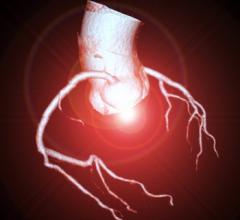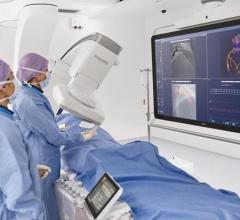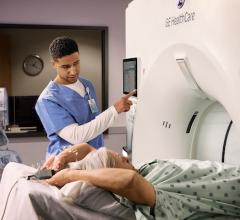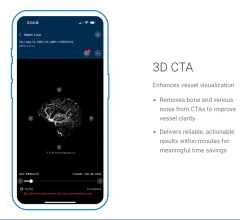September 19, 2007 - For patients with equivocal or discordant findings on myocardial perfusion imaging, CT angiography (CTA) can unmask false-negative and false-positive results, according to Regina S. Druz, M.D., North Shore University Hospital in Manhasset, N.Y., told attendees at the American Society of Nuclear Cardiology meeting.
CTA improved the specificity and positive predictive value of perfusion imaging results that were equivocal or abnormal.
“In patients with normal or mildly abnormal results, CTA demonstrated moderate or severe coronary artery disease not identified by [myocardial perfusion imaging parameters], thus identifying false-negative patients," said Dr. Druz. "CTA identified patients who had no or mild stenosis, thus identifying false-positive [perfusion imaging] results."
Investigators retrospectively reviewed records of 74 patients who underwent both perfusion imaging and CTA. The cohort included 22 patients with known coronary artery disease, 14 of whom had prior percutaneous coronary intervention.
CTA and perfusion imaging were performed within a year of each other (median of 29 days). Perfusion imaging preceded CTA in 58 cases, and the 22 patients with coronary artery disease all had conventional coronary angiography. Dr. Druz reported that 51 patients had exercise stress tests, and the remaining 23 had pharmacologic stress tests.
Performed with a 64-slice machine, 74 patients underwent both perfusion imaging and CTA. Twenty-two patients had known coronary artery disease and 14 had prior percutaneous coronary intervention. The study had a median age of 62.5.
Perfusion imaging results were normal in 18 cases, mildly abnormal in 24, and markedly abnormal in 32. CTA in those patients revealed stenosis in seven of 18 with normal perfusion imaging (moderate or severe in five of seven); 14 of 24 with mildly abnormal imaging results (moderate-severe in nine); and 21 of 32 with abnormal perfusion imaging (moderate-severe in 15).
Of the 22 patients with known coronary artery disease, angiography revealed stenosis of 70 percent or greater in 13. CTA correctly identified 14 of the 22 patients as having disease, and perfusion imaging identified 13.
For patients with coronary stenosis of 50 percent or greater (moderate-severe) by angiography, CTA added to equivocal or mildly abnormal imaging boosted specificity from 25 percent with perfusion imaging alone to 75 percent and positive predictive value from 70 percent to 82 percent (P=0.004 for both comparisons).
Among patients with frankly abnormal myocardial perfusion imaging results, CTA increased specificity from 63 to 100 percent and positive predictive value from 70 to 100 percent, but the differences were not statistically significant because of the small number of patients.
The research showed that the likelihood of finding stenosis with CTA was significantly greater in patients with abnormal myocardial perfusion imaging compared with normal or mildly abnormal imaging results (P=0.03).
For more information: www.asnc.org

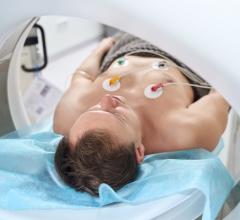
 February 06, 2026
February 06, 2026 


